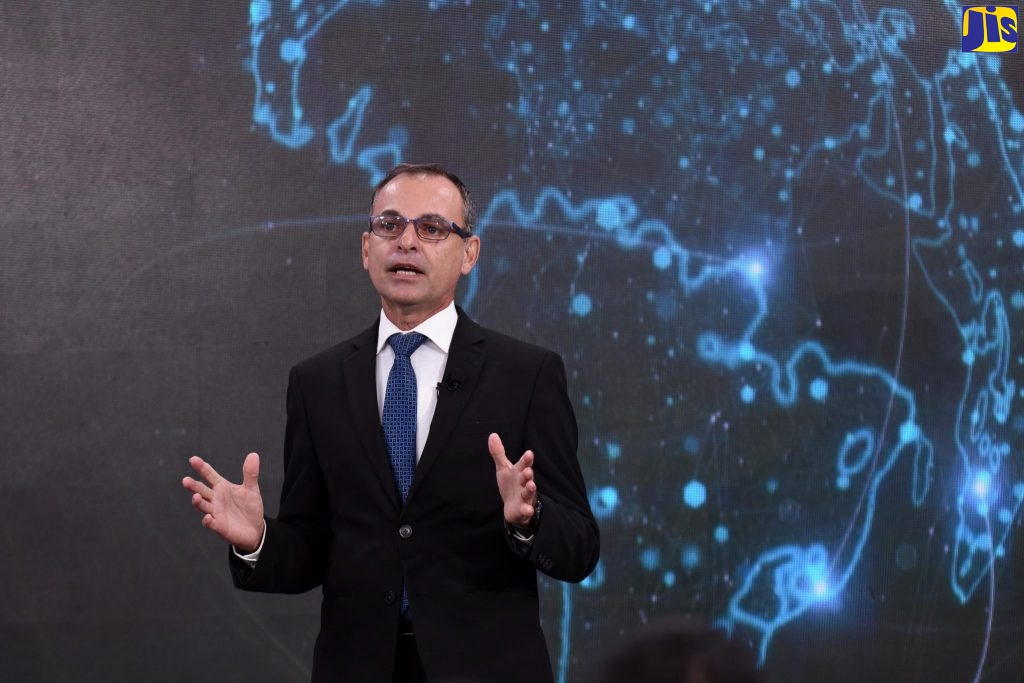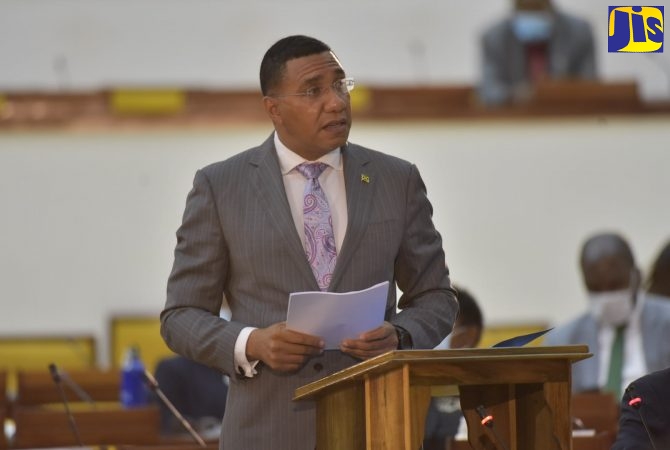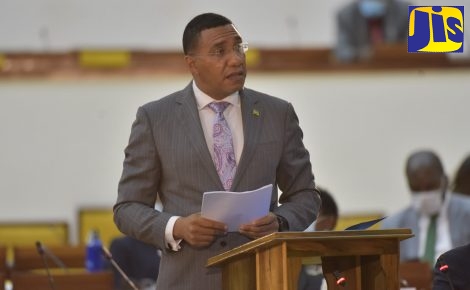Prime Minister, the Most Hon. Andrew Holness, says the Administration is seeking to pass the revised National Identification and Registration Bill into law before the end of the year.
In a Statement to the House of Representatives on September 29, the Prime Minister pointed out that the Bill will establish a reliable national identification system (NIDS), among other things.
“We intend to have the Bill through the Legislative Committee before the end of October. The Bill will come back to this House, and, out of an abundance of caution, I can state here that it will go to a Joint Select Committee. We would like, before the end of this year… to pass the Bill into law,” Mr. Holness said.
The Prime Minister noted that in April this year, a significant landmark was achieved when Cabinet approved the new voluntary National Identification and Registration Policy.
He said that substantial changes in the new policy include the voluntary enrolment under NIDS and the use of minimum biometrics, which are fingerprint, facial image and manual signature.
Mr. Holness pointed out that the new National Identification and Registration Bill is complete, and that the NIDS Policy Committee, along with the Legislation Committee, which is a subcommittee of Cabinet, will review the Bill.
The Prime Minister said the Government is fully cognisant of and sensitive to the legitimate concerns that persons have regarding data protection and privacy.
“We are committed to putting in place the legislative, technological and independent oversight mechanisms to ensure that the rights of persons are respected and protected. The Government intends to embrace a collaborative approach through the traditional process of getting the legislation passed,” he said.
Mr. Holness added that the Government will also provide an online forum on nidsfacts.com for all Jamaicans to comment on the Bill.
The Prime Minister argued that the NIDS will create economic value by enabling greater formalisation of economic flows, promoting higher inclusion of individuals in a range of services, and allowing incremental digitisation of sensitive interaction that require high levels of trust.
He said the Government remains steadfast in transforming the country into a digital economy and a digital society.
“We will, in a short time, bridge the digital divide,” he said.
Meanwhile, Mr. Holness noted that work is ongoing to boost technological capacities that will enable the transformation of a digital society.
He informed that in January 2020, the Public Key Infrastructure project was launched, which will enable individuals and entities to utilise e-signatures to transact business digitally with all State agencies in a safe environment.
“We are moving ahead with ensuring that when the legislation is passed, we can actually realise the NIDS because we have put in place the structures necessary to have the NIDS actualise,” he said.
The Prime Minister noted that the project is scheduled to be completed this calendar year, “paving the way for the introduction of things like e-passports and digital identities”.
“We have streamlined and organised our activities instead of doing them sequentially. We have worked simultaneously on all parts, so that by the end of the year or early next year, we should be able to start the execution and implementation of our national identification system,” he pointed out.
Mr. Holness said that work is ongoing to improve the operations of the Registrar General’s Department (RGD), thereby improving the overall delivery of services to customers.
“The development of a new electronic birth certificate solution is a major initiative being funded by the NIDS project at the RGD,” he pointed out, adding that the project has already commenced with a pilot project to be rolled out soon.
The Prime Minister said on completion, Jamaicans will have the opportunity to request, print and verify their birth certificates without face-to-face interactions from anywhere in the world.
He added that the digitisation of records is another significant component that will substantially improve the RGD’s operations. “Once completed, it will allow the agency to be more responsive. To date, the RGD has benefited from over $25 million invested in the procurement of new hardware and software infrastructure, including improvements in power distribution,” Mr. Holness said.
The layered rollout and management of the NIDS will be handled by a new agency, the National Identification and Registration Authority (NIRA), which will replace the RGD and provide more enhanced services.
The Bill seeks to facilitate the establishment and regulation of a National Identification System (NIDS) for the registration, verification and authentication of the identity of citizens and other persons residing in Jamaica; and the establishment of a National Civil and Identification Database to generate national identification cards.
Under this system, which the Government assures will be comprehensive and secure with anti-fraud features, every Jamaican will have a unique identification number.
Its implementation is expected to result in improved governance and management of social, economic and security programmes.
The sitting of the House of Representatives was held at the Jamaica Conference Centre in downtown Kingston.







